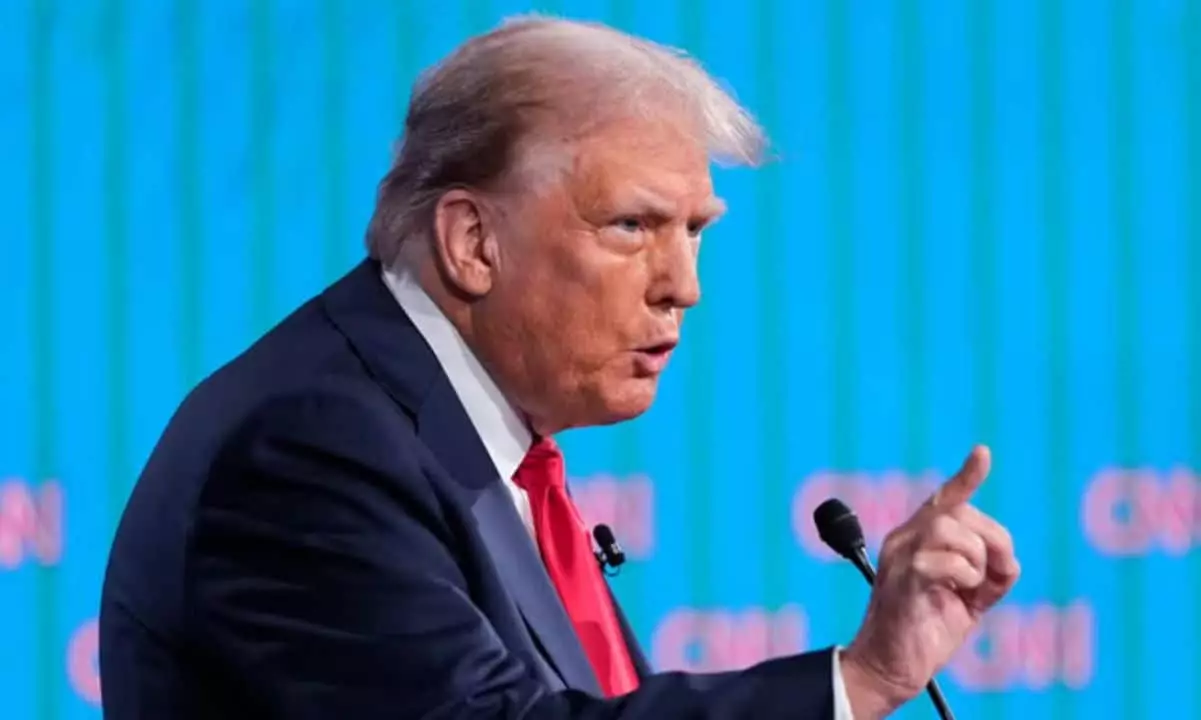In an era where cryptocurrencies are increasingly interwoven into the fabric of financial and political discourse, the emergence of the Official Trump (TRUMP) meme coin offers a striking case study. This Solana-based digital asset, which once boasted a dizzying market cap of $15 billion, has sparked vibrant debate about the ethical, economic, and regulatory implications of such speculative ventures. As the president himself admitted to having limited involvement beyond the initial launch, the controversy surrounding the coin raises essential questions regarding leadership, market integrity, and the future of cryptocurrency in the United States.
The TRUMP meme coin was initially heralded as a revolutionary force within the meme coin landscape, experiencing rapid growth that captured significant public attention. Investors flocked to the coin, buoyed by a sense of momentum and the notoriety associated with its namesake. However, the triumph was fleeting; competitors—most notably a coin launched by First Lady Melania Trump—led to a significant drop in its valuation, demonstrating the volatile nature of the crypto market. For a coin that entered public consciousness with such fervor, the swift decline serves as a reminder of the unpredictable environment in which it operates, leaving many to question the long-term viability of such digital assets.
During a recent press conference, President Trump’s comments on the TRUMP token revealed an alarming lack of depth in his understanding of the project. His admission that he didn’t track the coin’s status and his apparent detachment from its performance raise critical concerns. As the leader of a nation increasingly reliant on technological innovation, one must ponder the implications of a head of state exhibiting little engagement with a product bearing his name. This disconnection could imply broader issues of oversight and accountability that are crucial for ensuring the integrity and reliability of emerging financial technologies.
Moreover, the speculation surrounding who genuinely dominates the TRUMP token ownership remains a crucial point of contention. Industry analysts have pointed out that the coin’s supply might be heavily held by insiders, casting shadows over its transparency. Such an environment not only invites the possibility of market manipulation but also amplifies hesitations among potential investors wary of entering a space rife with uncertainty and conflict of interest.
The concerns voiced by prominent figures such as billionaire investor Mark Cuban and former Coinbase CTO Balaji Srinivasan further highlight the precarious nature of meme coins. Cuban likened investing in the TRUMP token to participating in a gamble, suggesting that without adequate regulations, the asset could erode the credibility of the broader crypto market. Likewise, Srinivasan’s description of speculative assets as a “zero-sum lottery” emphasizes the inherent risks that attract and, conversely, deter investment within the cryptocurrency sphere. Such critiques underline the pressing need for clear regulatory frameworks that can navigate the rapidly evolving landscape of digital currencies.
The intertwining of cryptocurrency and politics raises urgent questions about the implications for legislative progress. Some analysts posit that the president’s personal stake in the TRUMP token could undermine bipartisan efforts to cultivate a conducive regulatory environment. Accusations of market influence, particularly if tied to political figures, can stall the critical discourse needed to advance cryptocurrency legislation. Reports suggesting that investigations into Trump’s involvement could deepen partisan divides only heighten the need for a more structured approach to crypto governance.
As digital currencies like the TRUMP meme coin challenge traditional financial paradigms, both the crypto community and regulators face a pivotal junction. With controversial projects generating significant attention and speculation, the necessity for comprehensive regulations becomes increasingly apparent. The complexities of cryptocurrency, exemplified by the TRUMP token, prompt a re-evaluation of transparency, accountability, and governance in this nascent market. The road ahead for meme coins will likely be riddled with both obstacles and opportunities as stakeholders navigate this intricate new landscape. Through prudent regulation and informed engagement, the potential for transforming the regulatory landscape could pave the way for a more stable and trustworthy crypto environment.
















Leave a Reply